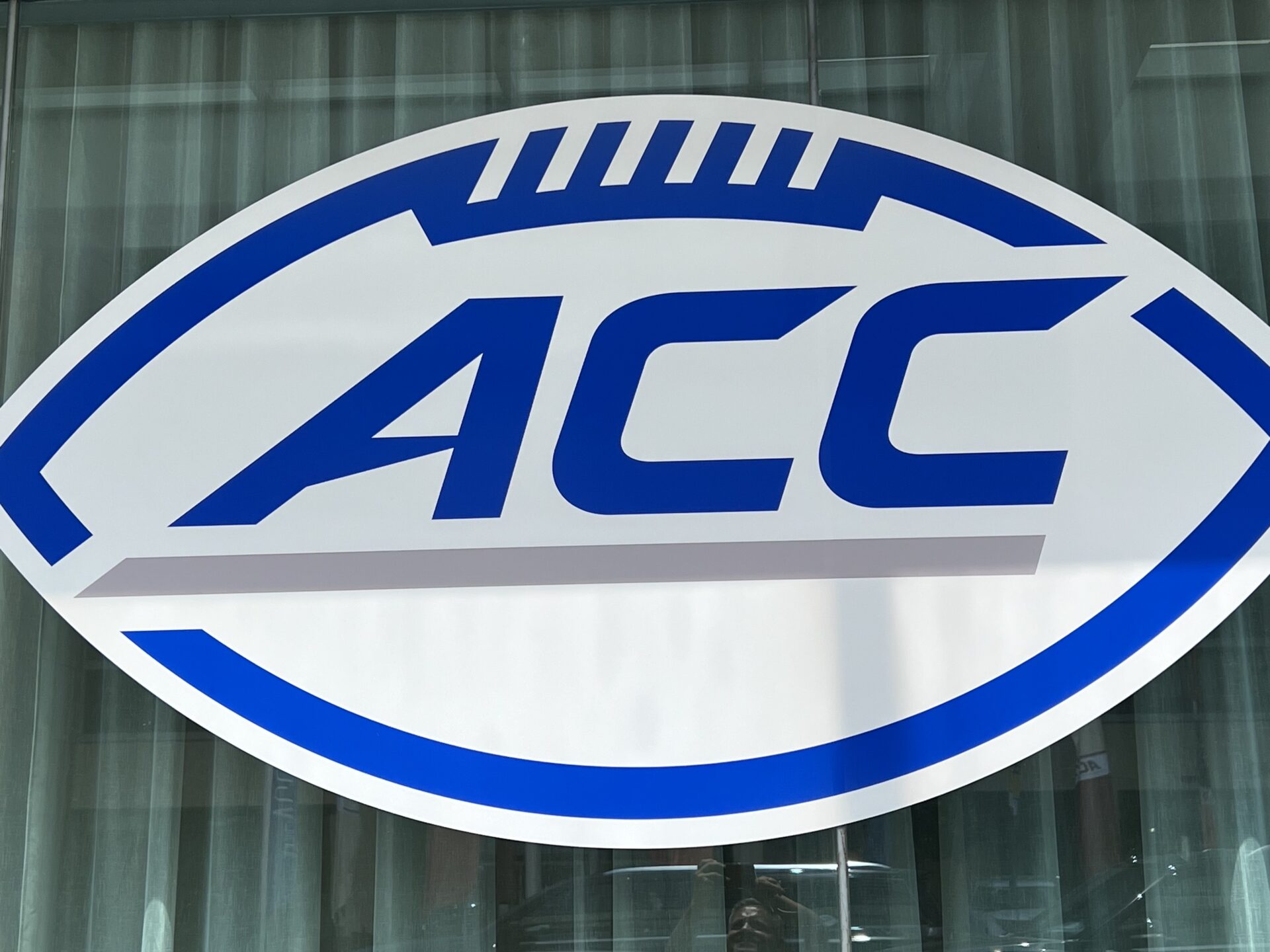Clemson University officially filed suit against the Atlantic Coast Conference (ACC) on Tuesday in Pickens County.
The lawsuit is the university’s first step in challenging the legality of the ACC’s broadcast and revenue policies as well as its exit fee for any member school wishing to leave the conference. In a response, an ACC spokesperson reiterated that conference leadership is confident that their position in regards to all member schools is legal and will be upheld in court.
A person speaking on behalf of Clemson Athletics released a statement to the media earlier Tuesday that reads, in part:
“Today, Clemson University filed a lawsuit in Pickens County, South Carolina, against the Atlantic Coast Conference (ACC). In this litigation, Clemson seeks confirmation of the plain language found in the Grant of Rights agreements and the related media agreements between the ACC and ESPN – that these agreements, when read together, plainly state that Clemson controls its media rights for games played if it is no longer a member of the ACC. Clemson also seeks a ruling regarding the unenforceability of the severe penalty the ACC is seeking to impose upon exiting members and confirmation that it does not owe a fiduciary duty to the conference as alleged by the ACC.”
Clemson Athletics spokesperson
The statement continued, “The ACC’s position regarding the Grant of Rights, the exit penalty, and obligations owed by members to the conference, as detailed in its public statements and other court filings, leaves Clemson with no choice but to move forward with this lawsuit.”
The ACC has a grant of rights agreement in place with its member schools that outline the financial penalty for any school wishing to join another conference. One major point of content is Clemson’s claim that should it leave the ACC, they should control the media rights to all games and argues that the substantial financial burden of leaving the conference is too excessive to be deemed enforceable.
Paragraph 14 of the court filing details Clemson’s umbrage with the potential loss of media revenue should it withdraw from the ACC and the effect it would have on the university and its athletic department.
That part of the filing accuses the ACC’s stance of being “erroneous” and having a “chilling” effect on the university’s ability to examine avenues for leaving the conference should they choose to do so. Additionally, Clemson University contends that the current policy adopted by the Atlantic Coast Conference hinders it from exploring alternative revenue sharing opportunities for home game broadcasts.
ACC Board of Directors Jim Ryan and ACC Commissioner Jim Phillips issued a rebuttal to the claims made by Clemson University with the following statement:
“The ACC remains confident that its agreements with all its members will be affirmed by the courts. Clemson, along with all ACC members, voluntarily signed and resigned the 2013 and 2016 Grant of Rights, which is binding through 2036. In addition, Clemson agreed to the process and procedures for withdrawal. The Conference’s legal counsel will vigorously enforce the agreement and bylaws in the best interests of the ACC’s current and incoming members.”
ACC Board of Directors Jim Ryan and ACC Commissioner Jim Phillips
— The ACC (@theACC) March 19, 2024
Clemson’s relationship with the ACC and conference leadership has been strained for some time, growing worse in recent years. Clemson University has been viewed as one of the schools most likely to explore leaving the conference, along with Florida State, but the $140 million penalty faced by either university has been a major sticking point.
Ultimately, Clemson wishes to achieve a number of goals by challenging the ACC through the court system.
Here's the close of Clemson's lawsuit, which sums up what they are asking for. pic.twitter.com/e9aHHMHjms
— Pete Thamel (@PeteThamel) March 19, 2024
Watching this litigation as it continues to make its way through the courts will be an interesting story as Clemson continues to hold its ground against what it perceives are unfair practices by the conference and its leadership.




